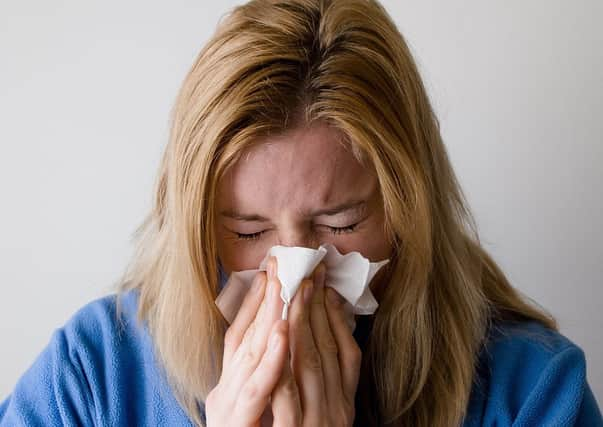Be prepared for the impact of summer allergies says Lincolnshire health expert


NHS Lincolnshire Clinical Commissioning Group is supporting Allergy Awareness Week between April 26 – 30.
Each year it says the number of allergy sufferers increases with half of those affected being children. The aim of Allergy Awareness Week is to raise awareness of the impact of allergies, as well as some of the things we can do to help.
Advertisement
Hide AdAdvertisement
Hide AdAn allergy develops when the body’s immune system reacts to an allergen as though it is a threat, like an infection. It produces antibodies to fight off the allergen, in a reaction called the immune response.
Common allergic disorders include asthma, eczema and hay fever, and symptoms of an allergy can include sneezing, wheezing, coughing and skin rashes.
The best way to prevent an allergic reaction is to avoid the allergen that causes it, although this is not always easy. Allergens such as house dust mites or fungal spores can be hard to spot and can breed in even the cleanest house.
It can also be hard to avoid pets, particularly if they belong to friends and family, however, you can take steps to help improve the situation such as keeping pets outside as much as possible.
Advertisement
Hide AdAdvertisement
Hide AdDr Dave Baker, GP and South West Lincolnshire Locality Lead for NHS Lincolnshire CCG, said: “At this time of year, many people start to be affected by allergies due to larger quantities of airborne grass pollen, suffering from symptoms such as sneezing, runny, blocked or stuffy nose, itchy eyes and post-nasal drip. However, some people are allergic to other types of pollen, such as tree or weed pollen, and may be affected at different times of the year.
“Anyone who is feeling unwell with the symptoms of hay fever should in the first instance visit their pharmacist who can offer advice on medication that is available over the counter to relieve the symptoms associated with the condition.”